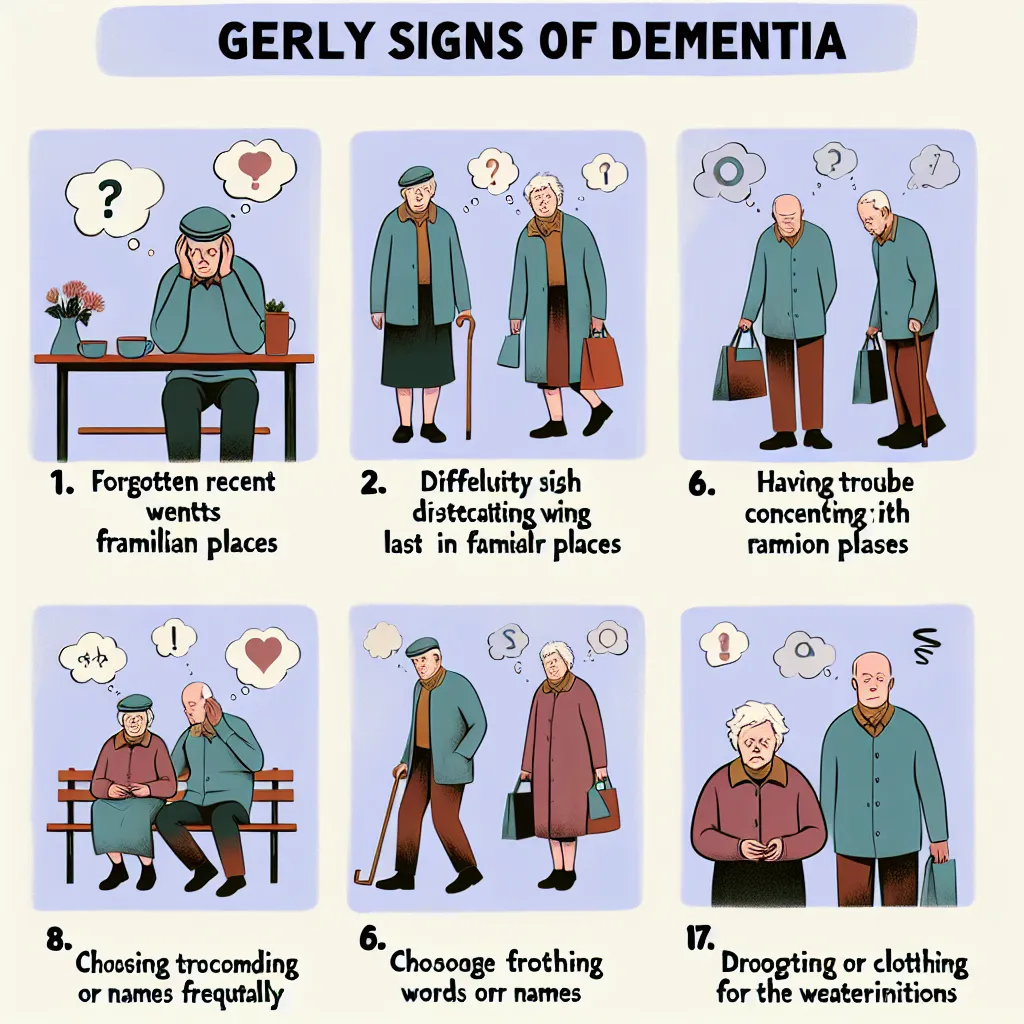10 Early Signs of Dementia
10 Early Signs of Dementia
Dementia is a chronic neurodegenerative disorder that affects millions of people worldwide. It is characterized by a decline in cognitive abilities, memory loss, and changes in behavior and personality. While dementia mainly affects older adults, it is not a normal part of aging. Early detection and intervention are crucial in managing the symptoms and improving the quality of life for individuals with dementia.
1. Memory Loss
Memory loss is one of the most common early signs of dementia. It may manifest as forgetting recent events, misplacing items, or repeatedly asking the same questions. While occasional forgetfulness is normal, persistent memory problems should not be ignored.
2. Difficulty with Planning and Problem-solving
Dementia can impair a person’s ability to plan and solve problems. This can be observed through difficulties in following a recipe, managing finances, or completing familiar tasks that were once routine.

3. Language and Speech Problems
Individuals with dementia may struggle to find the right words, have difficulty following conversations, or experience changes in their speech patterns. They may also have trouble understanding written or spoken language.
4. Disorientation and Confusion
Feeling disoriented or getting lost in familiar places is another early sign of dementia. This can lead to confusion about time, location, and even recognizing familiar faces.
5. Poor Judgment and Decision-making
Dementia can affect a person’s judgment and decision-making abilities. They may make poor financial choices, show a lack of hygiene, or display inappropriate social behavior.
6. Mood and Personality Changes
Individuals with dementia may experience significant mood swings, ranging from depression and anxiety to irritability and aggression. Their personality may also undergo noticeable changes.
7. Withdrawal from Social Activities
A person with early-stage dementia may gradually withdraw from activities they once enjoyed. They may lose interest in hobbies, avoid social interactions, and become increasingly isolated.
8. Difficulty with Motor Skills
Dementia can impact a person’s motor skills, making activities that require coordination and dexterity challenging. This includes difficulties with writing, using utensils, or dressing oneself.
9. Repetitive Behaviors
Engaging in repetitive behaviors, such as repeating phrases or performing the same action over and over, is a common early sign of dementia. These behaviors may serve as a coping mechanism or result from memory difficulties.
10. Changes in Vision and Perception
Some individuals with dementia may experience changes in vision and perception. This can lead to difficulties in judging distances, recognizing objects, or reading.
Conclusion
Recognizing the early signs of dementia is crucial for early diagnosis and intervention. If you or a loved one is experiencing any of these symptoms, it is important to seek medical advice. While there is no cure for dementia, early treatment can help manage the symptoms, slow down the progression of the disease, and provide support for individuals and their families.
